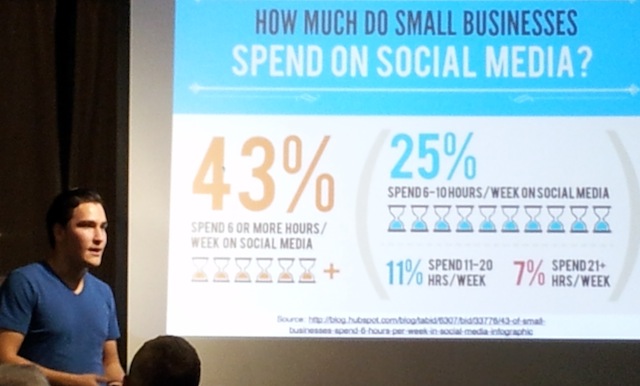Introduction
The world of cryptocurrency investing is not just about numbers and charts; it’s also about understanding human psychology. In this article, we’ll delve into the fascinating realm of investor psychology and explore how emotions play a crucial role in shaping decision-making processes in the cryptocurrency market. Whether it’s the thrill of a bull run or the fear of a market crash, emotions can often drive investors to make irrational decisions that impact their investment outcomes. Understanding these psychological factors is essential for navigating the volatile cryptocurrency market successfully.
Understanding Investor Psychology
Investor psychology is a complex interplay of emotions, cognitive biases, and market dynamics. Fear, greed, and FOMO (fear of missing out) are just a few of the emotions that can influence investor behavior in the cryptocurrency market. For example, during the Bitcoin bull run of 2017, FOMO drove many investors to jump on the bandwagon, leading to a frenzy of buying activity and ultimately, a market correction. Additionally, studies have shown that investors tend to experience heightened emotions during periods of extreme market volatility, leading to impulsive decision-making.
Investors looking for a reliable platform to trade cryptocurrencies can explore the features offered by https://bitqt.app/cz/, known for its user-friendly interface and advanced trading tools.
Emotions and Decision Making
Emotions can cloud judgment and lead to impulsive decision-making, particularly in a highly volatile market like cryptocurrency. Consider the case of John, who invested a significant portion of his savings in a little-known altcoin based on a tip from a friend.
Despite warnings about the risks involved, John’s fear of missing out on potential gains drove him to make an emotionally driven investment decision. Unfortunately, the altcoin crashed soon after, leaving John with significant losses and a valuable lesson in emotional discipline. Moreover, research conducted by behavioral economists has found that investors tend to experience stronger emotional reactions to losses than gains, a phenomenon known as loss aversion.
Cognitive Biases in Cryptocurrency Investing
Cognitive biases, such as anchoring and confirmation bias, can also influence investor behavior in the cryptocurrency market. Anchoring occurs when investors fixate on specific price points or historical trends when making investment decisions. For example, Sarah bought Bitcoin at $20,000 and refused to sell even as the price plummeted, anchored to the belief that it would eventually return to its previous high. Confirmation bias, on the other hand, leads investors to seek out information that confirms their pre-existing beliefs about a particular cryptocurrency, ignoring contradictory evidence. Additionally, research published in the Journal of Behavioral Finance has shown that overconfidence bias is prevalent among cryptocurrency investors, leading them to overestimate their ability to predict market movements accurately.
Strategies for Emotional Regulation
Managing emotions and cognitive biases is essential for successful cryptocurrency investing. One strategy is to develop a disciplined trading plan and stick to it, regardless of market fluctuations. Additionally, practicing mindfulness and emotional awareness can help investors recognize when their emotions are influencing their decisions. Finally, seeking support from trusted advisors or online communities can provide perspective and guidance during times of market uncertainty. Moreover, research conducted by psychologists at the University of California, Berkeley, has found that investors who engage in regular mindfulness practices are better able to regulate their emotions and make more rational investment decisions.
Learning from Mistakes and Successes
Real-life case studies offer valuable insights into the impact of emotions and cognitive biases on investment outcomes. For example, the infamous Mt. Gox hack of 2014, which resulted in the loss of over 850,000 bitcoins, was fueled in part by investor panic and fear. Conversely, investors who remained calm during the market downturns of 2018 and 2020 were able to capitalize on buying opportunities and ultimately, profit from the recovery. Additionally, a study conducted by researchers at the University of Cambridge found that investors who actively managed their emotions and avoided impulsive trading behaviors tended to outperform those who did not. Join the growing community of cryptocurrency enthusiasts on https://bitqt.app/cz/, where transparency, reliability, and innovation converge.
Investor Mindset and Resilience
Developing a resilient mindset is key to navigating the ups and downs of the cryptocurrency market. Emotionally resilient investors understand that volatility is a natural part of investing and are prepared to weather the storm. They focus on long-term goals rather than short-term gains and remain disciplined in their investment approach, regardless of market sentiment. Moreover, research conducted by psychologists at Stanford University has found that investors with a growth mindset, who view challenges as opportunities for learning and growth, are better able to adapt to changing market conditions and achieve their investment goals.
Today everyone can explore the endless possibilities of cryptocurrency investment with https://bitqt.app/cz/, where every trade is executed with precision and confidence.
Conclusion
In conclusion, understanding the psychology of cryptocurrency investing is essential for success in the market. By recognizing the influence of emotions and cognitive biases, investors can make more rational decisions and avoid common pitfalls. Whether it’s fear, greed, or FOMO, emotions will always play a role in investing, but by developing emotional awareness and discipline, investors can tilt the odds of success in their favor. Moreover, ongoing research in the field of behavioral finance continues to shed light on the complex interplay between psychology and investing, offering valuable insights for investors seeking to navigate the dynamic cryptocurrency market.


